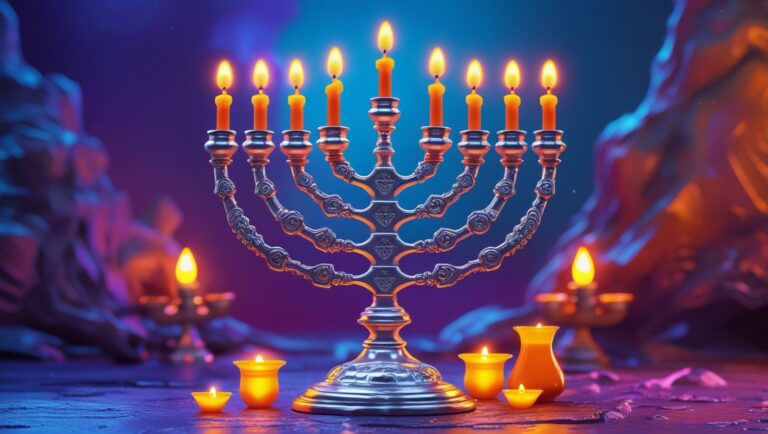Middot are difficult to be rectified. None less than the Gaon of Vilna said that “it’s easier to know the entire Shas than to rectify a single Middah”.
Part of the challenge comes from not knowing how much rectification is needed and which path to take toward it. Once I heard a Rabbi saying, when it comes to Middot, one could “go either the path of water (enjoying life) or the path of fire (abstaining from pleasures)”.
It’s also not the most pleasant of feelings to say “no” to chocolate cake.
So, for example, you need to sleep. How much sleep is enough and how much is excessive? One can claim that he needs 8 hours of sleep, but does he really? The Chatam Sofer once remarked that, when the Rambam paskened “8 hours of sleep”, he meant “8 hours of sleep every 2 days”.
But, nowadays, who can keep up with only 4 hours of sleep per night?
Similarly, some people make an effort not to eat sugar during weekdays, but even they may sometimes need a little treat not to go crazy in refusing everything. This is in line with what Rabbi Chaim Vital writes in Sha’arei Kedusha that the way to rectify one’s water element (which is associated with lust) is by refusing physical pleasures.
Yet, say this person who’s at a very good level goes to his parents’ house and they make a nice chocolate cake. Should he eat or should he refuse? The answer, I believe is in eating, but trying one’s best to nullify the pleasure. That might be the most appropriate answer for someone of that level instead of going Gung Ho and offending his parents. There’s a time to be stubborn and a time to relent.
Money can be good and can be bad at the same time.
Rebbe Nachman teaches in Likutey Moharan 30 that one needs to hate money to the extreme while at the same time teaching in Torah 60 that money can bring a person to “depth” of Torah. Tzadikim like the Baal Shem Tov would dispense all their money before going to sleep in order to “completely trust Hashem” every single moment of their lives.
Yet, lack of money can prevent one from properly understanding the depth of Torah because he’s constantly worried and can’t concentrate. The answer for many people I’d say, lies in having a lot of money, but making sure it is completely meaningless. That’s still a very difficult job.
Let’s explore 2 different perspectives on Middot
The first one is according to the Baal Shem Tov in Tzava’at HaRivash
You are probably familiar with the Middot from the Etz Chaim’s 10 Sephirot Diagram:
The intellectual Sephirot (Chokhmah, Binah and Da’at) also known as Mokhin must be brought so a person can rule over his 6 lower Middot, which are:
- Chesed (Lovingkindness)
- Gevurah (Strength)
- Tiferet (Beauty/Harmony)
- Netzach (Victory/Eternity)
- Hod (Splendor)
- Yesod (Foundation)
The reader will note I didn’t add Malkhut, because it is essentially an offshoot of the upper 6. In the language of the Zohar: Aspaklaria D’Leit Lah MiGarma Klum – Tr.: A mirror that has nothing of its own. A blemish in Malkhut, therefore, is a consequence of not rectifying the upper six Middot.
The Ba’al Shem Tov doesn’t explain each Middah in detail because he relies on the person’s own understanding. So, for example, when it comes to Chesed, a person can use it for good, in helping others and giving Tzedaka. However when this Middah is fallen, it can mean that one loves pleasures.
Similarly, when it comes to Gevurah, one can reign in on his own Yetzer HaRah and abstain even from that which is permissible, which is often a good thing. However, in its unrectified state, this Middah can mean one gets angry easily or is stingy with his money.
For the rest of the Middot, the Baal Shem Tov doesn’t explain them much, but one can surmise that Tiferet refers to balancing one’s life in all regards (spiritual vs. material, private vs. public, etc.), Netzach refers to his perseverance and grace in victory, Hod refers to humility and Yesod refers to sins of a sexual nature and lust.
According to Rav Chaim Vital in Sha’arei Kedusha
However, in Sha’arei Kedusha, Rav Chaim Vital does list the “Earth Element” as a necessary Tikkun. If we consider that each Sephira is related to one element, we’d have Malkhut as the Earth Element.
The Middot are grouped into 4 elements as follows:
- Fire – Traits of arrogance and anger mainly, but also hakpada (I guess this is translated as “irritation”) and hatred
- Wind – Traits of forbidden and useless speech like flattery, lying, lashon harah and revealing one’s good deeds (a very bad thing, which many people are unaware of).
- Water – Lust for physical pleasure, lust for theft and jealousy
- Earth – Laziness and sadness mainly, but also not being content with one’s lot
Abundance and the Tikkun HaMiddot
In Sha’arei Kedusha, Rav Chaim Vital also writes that one will be judged not only for the Mitzvot he did or transgressed, but also for the Middot he didn’t rectify. While the Avodat HaMiddot is incredibly important, I will hazard a guess and say that, because we are in such a lowly generation with an abundance of temptations for cheap, we should get a massive “bonus” for succeeding in the little we do. We should also get a “discount” for failing whatever we fail, but I’m biased since I probably want to have it easy after I leave the world by 120.
Back in my wilder days when I was working in Tel Aviv for a Forex company, I started guarding my eyes better and would try my best not to look around, but to the floor. Lo and behold, I actually sighted a card with a rather immodest lady displayed prominently there. One can’t even trust the floors nowadays.
As Rebbe Nachman teaches, the little effort a person exerts can propel him many parsaot (1 Parsah = more or less 4 miles) in Shamayim. Rav Chaim Vital also once asked the Arizal “why is it that, had I been in one of the previous generations, I’d have been a regular Rabbi [and nothing special]?”. We should keep in mind that, even before meeting the Arizal, Rav Chaim Vital was an astounding Talmid Chakham who studied under the Ramak and Rabbi Yosef Karo.
Yet, he was aware of how much greater the previous generations were. As an aside, I once heard the Rabbi say that many Rishonim would make Tefilat HaDerekh after finishing the Amidah (I don’t remember the source). The reason was that their Dvekut with Hashem was so potent that they feared “going back down” and had to pray for assistance in adapting to the lower realms, hence the Tefilat HaDerekh.
Consider this notion for a while. There are people who leave their bodies to go to the Spiritual Worlds during a regular Amidah and would actually feel the need to “pray Tefilat HaDerech. I’m pretty sure this Rabbi was not exaggerating, as I also heard once the Mekubal Rav Shmuel Darzi was praying and was beaten up by a mad man. When he finished his prayer he was on the floor all hurt, but wondered “what had happened”, because he couldn’t feel a thing.
The Arizal replied “true, they were much greater, but that’s because the Klipot are that much stronger nowadays. Nevertheless, this means that whatever Mitzvot or Talmud Torah we engage in has a much greater merit”.
Now I’m not going all woo-woo and try to sell you a foundational class on “how to remove blockages from your life” for an eye and a leg, but many real, God-fearing Rabbis hold that Middot can prevent the “abundance” from coming to one’s life.
This should be obvious for the following reasons: let’s say a person can’t control his lust. Getting tons of money would not help him. In fact, it would make his life even more difficult from a spiritual point of view because if he gets the money, he can do everything he desires without many (visible) consequences. But, if he fixes that Midah, Hashem can see that he won’t do stupid things with his blessings.
In the end, I believe it’s up to each individual to choose the path he wishes to go in Tikkun HaMiddot. One can be great being poor and being rich, eating like Kind David (barely) or like King Shlomo (who ate a lot but nullified the pleasure), praying a lot or studying a lot, and so on.
Balance is key and I believe each person should know where he stands. In thinking one is a level above (or below) what he truly is would be an act of self-betrayal. I found out however that I was often judging myself too harshly, thinking I reached levels that were beyond me, when in reality it was mostly wishful thinking. I was not there yet.
To be absolutely clear: there is meaning and value in being Machmir with oneself. But, it eventually came to me that, for most people, Chesed is a much greater light than Gevurah, and while everyone needs to follow all Halachot from the Shulchan Aruch, being lenient can often be a good thing, not only in action but also in thought in a spiritual sense. Sometimes we cannot do more than the bare minimum, and pushing oneself beyond one’s limit can be very harmful.
Yet, we see from our holy sages and rabbis that eventually they reached their level by being strict with themselves and seeing the world with a lenient eye.







